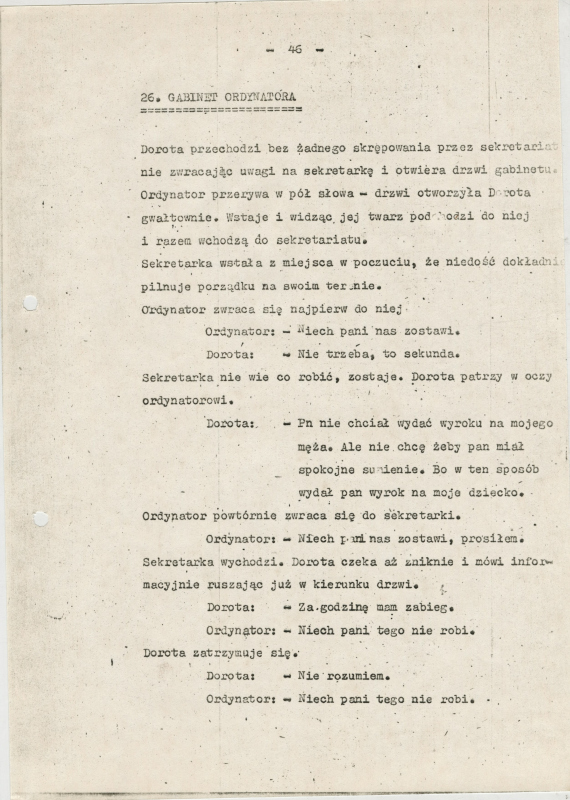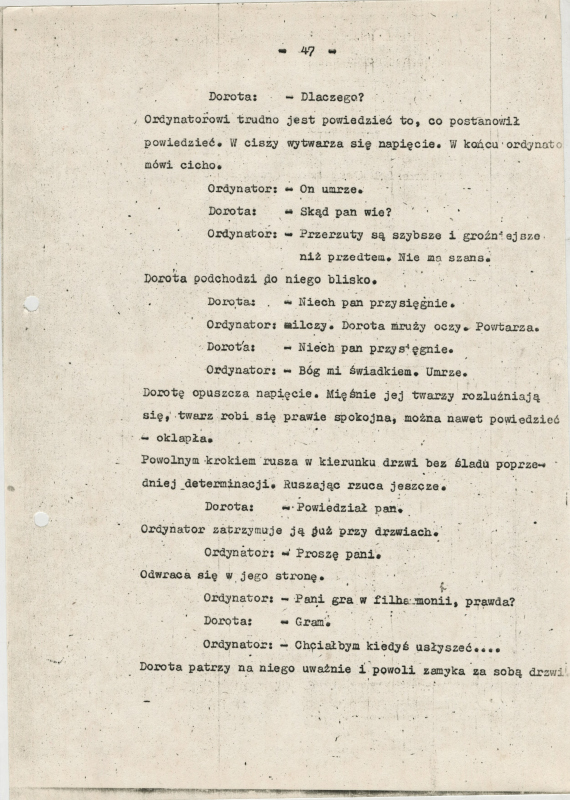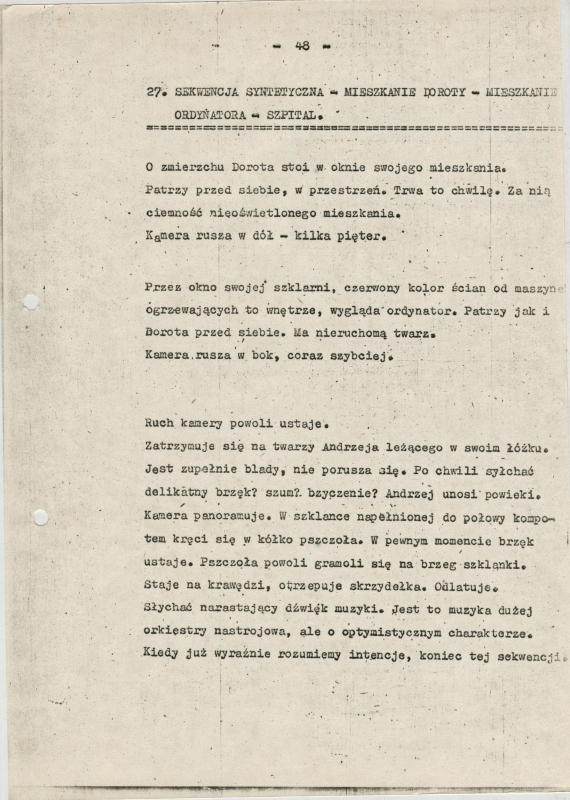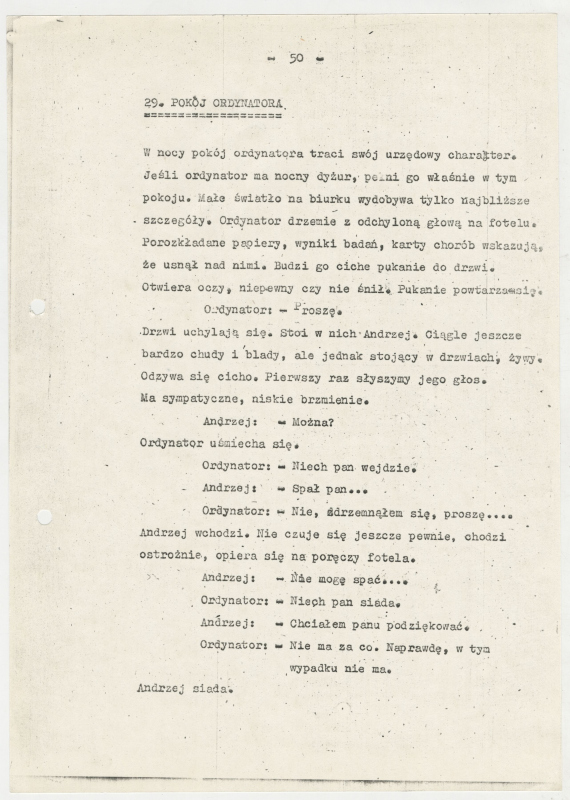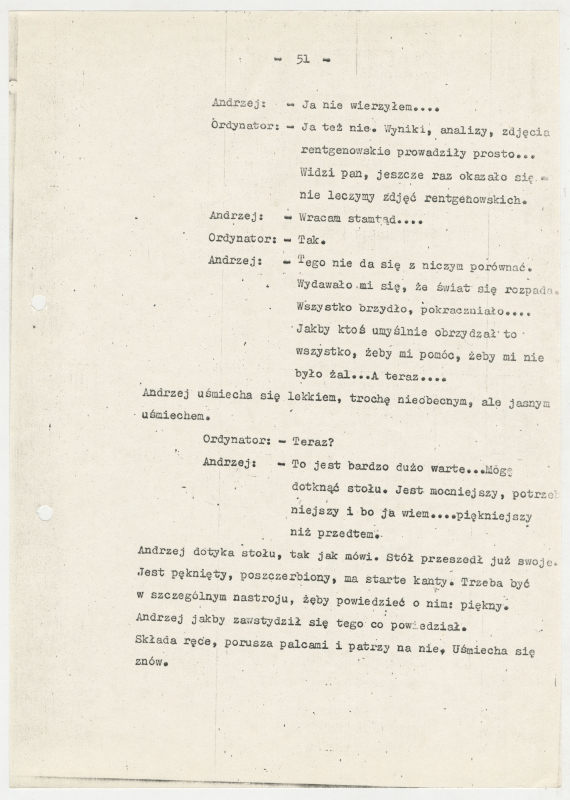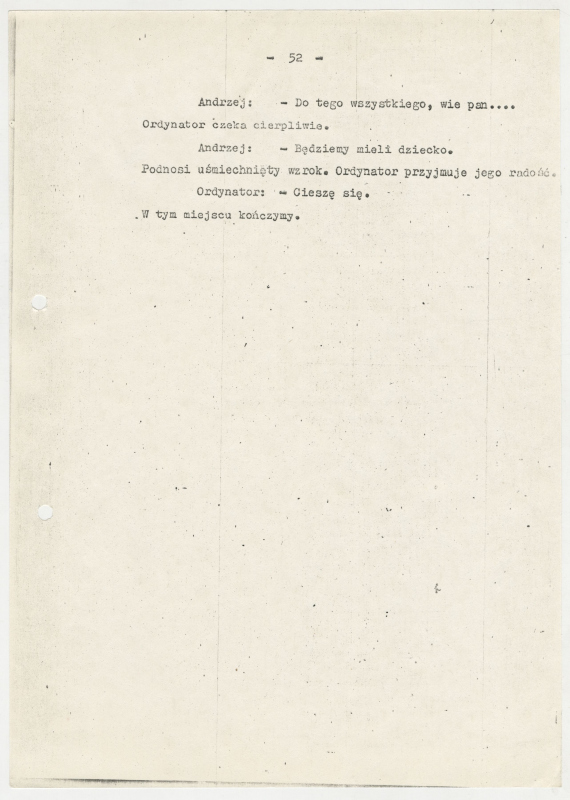Hospital on Lindley Street
The story of this hospital dates back to the 18th century, when a “Foundling’s Home” was opened on Krakowskie Przedmieście. The institution offered medical care and refuge to poor and pregnant women, the elderly, and the disabled. Its current buildings were constructed in 1901. The hospital was used as a hiding place by soldiers of the Polish Underground State during the German occupation of Warsaw, and provided aid to the city’s persecuted Jewish population.
Decalogue Two
The story of this episode revolves around the hospital on Lindley Street. It is here that the lives of the three characters intersect: the seriously ill Andrzej (Olgierd Łukaszewicz), his wife Dorota (Krystyna Janda), and the elderly chief physician, played by Aleksander Bardini. The mountaineer’s dire medical state is underscored by the miserable interiors of the hospital, where paint peels from the walls and water drips from the ceilings. This was a common sight in Polish hospitals at the time of production. Kieślowski had already shed light on the country’s health care services in Hospital (1976), a short documentary about a 36-hour shift at an orthopedic ward. In both films, the abysmal state of hospital infrastructure starkly contrasts with the dedication of its staff, who manage to perform miracles despite the having to work in such substandard conditions. In one of the more memorable scenes in Decalogue Two, a bee is seen drowning in a glass of fruit kompot, and then saving itself by climbing up the walls of the vessel. Andrzej watches the insect’s efforts as he fights for his life in his hospital bed. His nearly miraculous recovery is metaphorically depicted in this seemingly minor event. The scene with the bee was devised by Krzysztof Piesiewicz, co-author of the screenplay, who as a child had often observed insects struggling to survive after falling into the kompot his mother left on his nightstand when he was sick.
Mikołaj Jazdon
The Second Commandment:
You shall not take the name of the Lord your God in vain.
“Between life and death”
Kieślowski illustrates, ever so aptly, the catechistic interpretation of the puzzle that is the second commandment. Moses, having been summoned to Mount Sinai by God, desires to learn the mystery of His name. Though he “removed his sandals” as a sign of reverence before the Divine flame of the burning bush, and though he accepted—though not without hesitation—the unimaginable mission given to him by Providence, he still could not learn the mystery of his death in the desert of life that barred his way on the road to happiness. It is this place, the most sensitive spot in the commandment against “taking the Lord’s name in vain,” that Kieślowski probes in the second film.
A Woman desires to learn the secret of life and death as she is driven to madness by her anxiety over choosing between her loyalty to her dying Husband and her feelings for another, with whom she recently became pregnant. She forces the hospital to adjudicate.
The old Doctor—who has felt the grief of the irreparable loss of a loved one, and thus the loss of the happiness of sharing a life with them—gives in to the temptation and errs on the side of a negative prognosis. But Divine judgments, like His name, should remain a Mystery.
His name is uttered, but is it “taken in vain”? In the end, life unexpectedly prevails, though not by a forced verdict. That would be against the second commandment and, ultimately, false. But in result, and thanks to the mystery of the Husband’s cure: “We’re going to have a baby.” But are they? Isn’t the peril that lies ahead too great? There are other dilemmas to consider here, ones that stem from other commandments: the sixth and seventh, concerning faithfulness, and the eighth, about bearing false witness…
